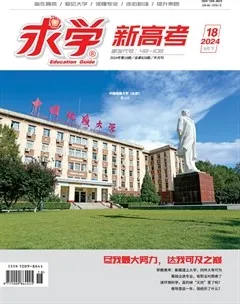为什么中国年轻人不愿意为爱情买单了?
During China’s go-go years(经济蓬勃发展的岁月), young couples holding enormous bouquets of roses were a familiar sight during the Qixi Festival, an ancient holiday celebrating love and loyalty.
People would flock to(涌入) social media to show off brand-new iPhones and Louis Vuitton handbags gifted by their partners, as well as photos of dinners at fancy restaurants, during the Chinese version of Valentine’s Day, which typically falls in July or August each year.
That was when China’s economic growth was the envy of the world. This year’s festival was on Saturday, and it was a very different story. People went online to complain about the lack of gift giving and festive spirit, citing a sluggish economy.
The hashtag “consumption plummets on Chinese Valentine’s Day. Are young people unwilling to pay the love tax?” became the No.1 trending topic on the Weibo platform on Saturday.
Owners of some flower shops took to Xiaohongshu, another popular platform, to bemoan the lack of customers, posting images of unsold roses lining their stores.
How China’s lovers behave is an issue for global businesses - and the government in Beijing. In recent weeks, a number of Western multinationals, from cosmetics giant L’Oreal to carmaker Volkswagen, have sounded the alarm over weak demand in China as consumer confidence remains in the doldrums.
The lackluster mood is also affecting the Chinese government’s efforts to encourage marriage as a way of addressing falling birth rates and an aging population. A shrinking population is likely to be a drag on economic growth.
Qixi, which has been celebrated for thousands of years, according to legend, it is the one day a year that mythical lovers Niulang, a cow herd, and Zhinu, a weaver, are able to meet on a celestial bridge.
In previous years, it was a fertile opportunity for Chinese and Western companies to market their wares. But now Global CEOs are no longer able to count on China as a commercial stalwart. What the Chinese people need to think is how to get rid of this downturn, recover the economy as soon as possible, and solve the problems of aging population and low fertility.
(材料选自CNN,有删改)
1.What happened to Qixi Festival this year?
A.A large number of couples break up on this day.
B.No one has celebrated Qixi Festival.
C.No one exchanged gifts, nor did they greet or confess joyfully.
D.People flock to the platform in large numbers to share the Apple phones given by their partners.
2.What does the phrase in the underlined section mean?
A.Astonish. B.Complain. C.Get angry. D.Despair.
3.Which of the following impacts is not caused by the gloomy Qixi Festival?
A.The owner of an flower shop on Xiaohongshu posted many unsold roses.
B.Resulting in a decrease in sales of Western multinational corporations in the Chinese market.
C.This has affected the Chinese government’s efforts to encourage marriage as a way of addressing falling birth rates and an aging population.
D.It led to the decline of traditional festivals such as Qixi.
4.At the end of the article, what attitude does the author express towards this phenomenon?
A.Concerned. B.Indifferent.
C.Delighted. D.Neutral.
1.C。细节理解题。解析:材料第三段的第二、三句提到“今年的七夕节在周六,情况却完全不一样。大家在网上抱怨没有人送礼物,也没有节日气氛,理由是经济低迷”,C选项“没有人交换礼物,也没有人高兴地打招呼或表白”与材料内容相符,故选C。
2.B。词义辨析题。解析:画线词所在的句子意思是“一些花店老板来到另一个受欢迎的平台——小红书,抱怨没有顾客。他们晒出店里未售出玫瑰的照片”,由此可知bemoan的意思是“抱怨、埋怨”,与B选项的意思相似,故选B。
3.D。推理判断题。解析:A选项“小红书上的花店老板晒出了许多没有出售的玫瑰花”与材料内容相符;B选项“导致西方跨国公司在中国市场的销售额下降”与材料内容相符;C选项“这影响了中国为鼓励婚姻以解决出生率下降和人口老龄化问题所做的努力”与材料内容相符;D选项“七夕节的低迷导致了传统节日的衰落”在材料中未提及,故选D。
4.A。观点态度题。解析:材料最后一段的最后一句提到“中国人民需要思考的是如何走出这场低迷,尽快恢复经济,解决人口老龄化和生育率低的问题”,可见作者的态度是担忧的,A选项符合题意,故选A。

